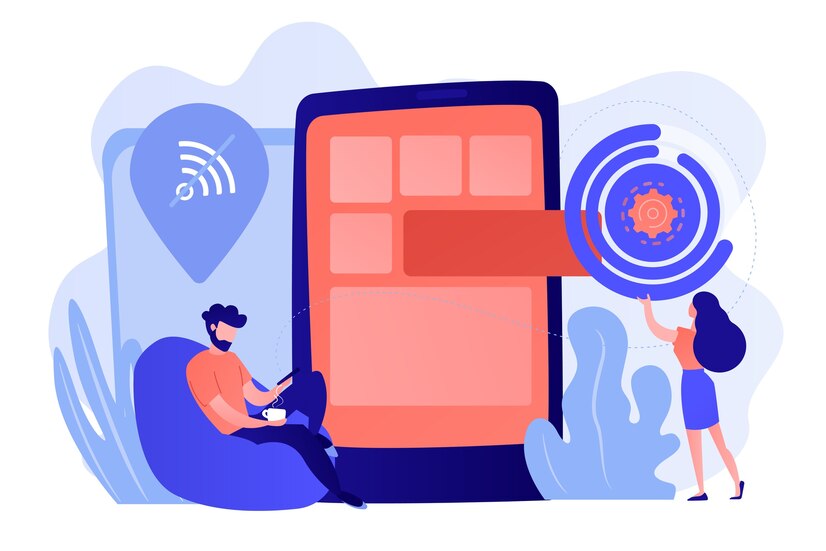AI has become a crucial aspect of our lives, transforming how we live, work, or run our businesses. Its rise has ushered in exciting opportunities, like enhanced efficiency and accuracy in various industries. As per a survey, AI investments have increased more than in previous years, with the global total corporate investment in AI reaching almost a stunning 92 billion U.S. dollars in 2022.
AI has gradually made its presence felt in domains once only meant for human skills, like software testing. Organizations have started leveraging AI for software testing as it can simplify the automation process and deliver high-quality outcomes that traditional testing techniques cannot achieve.
These are some of the software testing tasks for which you can use the help of AI:
- Test planning: You can plan what test cases are to be created for a new upgrade and how they can be executed.
- UI testing: AI-powered tools can easily generate test cases to test all the UI workflows.
- Automating similar types of workflows: AI tools can save precious time by automating all workflows that are alike, allowing you to focus on other core testing tasks.
- Performance and load testing: They can be used to generate the load required for performance and load testing.
- Executing test cases as per changes: AI software can be programmed to analyze the risks after code changes and identify the test cases to be executed to ensure everything is smooth before the release.
Benefits of AI in software testing
By leveraging AI in software testing, you achieve extensive coverage, greater accuracy and cost-efficiency and many more advantages. Let us look at each benefit in detail.
-
Faster and smarter test creation
AI tools can help testers generate test scripts quickly and intelligently. You can create a test for a specific scenario in a few seconds just by entering a prompt in plain language. By learning more about the user behavior of the application under test, AI adapts its test generation to align with your specific requirements.
AI will suggest the most appropriate test cases based on your testing patterns, requirements, existing cases, and logged test cases, thus ensuring optimal test case selection.
2. Increased test coverage
Through AI-powered testing tools, you can test every possible test scenario. This enables teams to achieve a higher test coverage in lesser time, which is impossible in manual testing or other conventional automation techniques.
By checking the data tables, file contents, internal program states, and memories, AI can increase test coverage, leading to more efficient testing.
3. Greater accuracy
We know how with manual testing methods, particularly in the case of repetitive tasks, the chances of human error are high. Though automation testing has helped reduce such errors to a certain extent, with the power of AI, you can manage repetitive tasks even more effectively and record results more accurately.
AI never gets exhausted when performing repetitive tasks and is not prone to errors like humans. Thus, through AI, the overall accuracy of tests improves significantly, with only remote chances of error.
4. Speedy test execution
Using an AI-powered testing tool, you can perform several test cases within a short time, accelerating the software testing process. AI can quickly run through log files and scan code in seconds to identify errors in much less time.
This allows the QA team to focus on more critical tasks that demand their attention instead of wasting time and energy on repetitive, tedious tasks.
5. Better automation
It is the responsibility of the testers to ensure that changes in code do not destabilize the existing functional code. As more features get added to an application, the volume of code to be tested increases, overloading the testers who are already struggling.
However, this difficulty is resolved using AI tools that can evolve along with code changes and easily identify modifications to the code. They can be programmed to determine whether it is a new feature or some defect arising from the code changes.
6. Integration with CI/CD
AI testing lets testers easily integrate with CI/CD pipelines, enabling automation at each stage and facilitating continuous testing.
Thus through AI, feedback cycles are accelerated, ensuring the application remains stable and deployable.
7. Comprehensive test reports
Most AI-powered test automation tools can run test cases automatically and provide detailed reports on the results. They can also analyze the results and determine the defects and bugs that have to be rectified.
With their details, the reports help testers share feedback with developers, enabling them to keep track of the progress in the software testing activities.
8. Easy test maintenance through self-healing
Any software is subject to frequent changes, and updating a large volume of test cases every time code changes can be time-consuming. However, this challenging task of maintaining test cases is made easy through AI tools.
AI tools, with their self-healing mechanism, can easily regenerate test cases whenever code changes occur.
9. Makes testing more accessible
Most reputed AI tools are codeless tools that any tester, whether beginner or experienced, can use to automate even complex workflows by using plain commands in English. Moreover, these tools have simple,easily-understandable interfaces that make executing test cases an easy task.
Thus, AI makes testing more accessible for testers, developers, and all stakeholders and reduces the dependence on programmers with specialized knowledge and experience.
Conclusion
With such a wide range of benefits, AI testing is, undoubtedly, a game-changer that can revolutionize traditional approaches to software testing. AI can spot issues before they become bigger problems, helping you identify the tests you need to prioritize for the best results.
If you want to elevate your testing efficiency to the next level, you cannot overlook the use of AI in your software testing process. However, to fully avail of these amazing benefits of AI testing, you must employ a reliable testing platform, like TestGrid, the most trusted platform for end-to-end testing of web, mobile, and desktop applications.
TestGrid allows you to author test cases in plain English, BDD, and CSV and just paste them into its AI portal to generate test cases, making even testing highly sophisticated applications easy. Its incredible AI technology lets you identify vulnerabilities and bugs in the early development stages itself, thereby reducing the debugging time to more than 50%.
With TestGrid’s AI-powered, codeless testing, you can power your automation testing way beyond your expectations and easily achieve your objectives of cost-efficiency and faster delivery of error-free software to the market.






